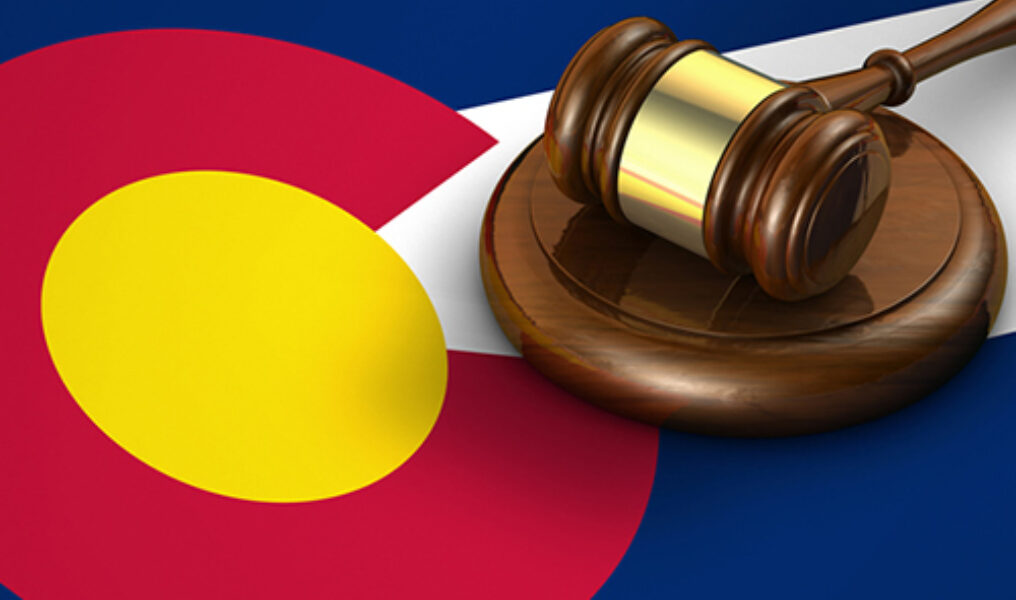LGBTQ activists are celebrating Colorado becoming the 10th state in the country to prohibit the gay and transgender panic defense in state court — but that win came after a battle and was never a sure bet.
Even though Democrats control both chambers of the Colorado Legislature and the governor's mansion, the legislation faced intraparty opposition and was initially killed in a Democratic-controlled Senate committee before becoming law.
Gov. Jared Polis, the first openly gay man elected governor in U.S. history, signed Senate Bill 20-221 on Monday after earlier this year downplaying the need for it himself in an interview with the Washington Blade. At the time, Polis said gay and transgender panic defense was "not an often used concept" in court.
Amanda Gall, who helped draft the legislation as sexual assault resource prosecutor for the Colorado District Attorneys' Council, said opponents of the legislation expressed concern "it didn't really happen, that it wasn't that frequent or surely this still couldn't be an issue in Colorado in 2020."
"We had to engage in educational efforts to say, 'Yes, this really does happen. This really is an issue in Colorado. This argument is made. Sometimes it's successful, sometimes it's not, but we need to keep it out of Colorado courtrooms," Gall said.
It took a "huge effort," Gall said, to bring the legislation back from the dead, which were made more complicated with suspension of legislative activities during the coronavirus crisis.
Individuals accused of violent crimes against LGBTQ people have in the past invoked gay and trans panic defenses in court to receive a lesser sentence, and in some cases, avoid conviction. In essence, the accused would blame the emotional disturbance of finding their victim was LGBTQ to avoid legal consequences for the act of violence.
Legislation against the practice initially was introduced by State Rep. Leslie Herod as House Bill 1307 and approved by the Colorado House in March, but when the measure reached the Senate, it died in committee.
In a counterintuitive development, a 3-2 party-line vote, three Democrats voted to table the measure, a motion on which two Republicans voted "no."
The process to bring the bill back began with Colorado State Rep. Brianna Titone, the first openly transgender lawmaker in the state, who said in an email to the Blade she wrote to leadership in the House and Senate in addition to starting an online petition.
"For me, I heard the protesters outside the building calling for justice with the BLM movement," Titone said. "Black trans women disproportionately experience violence and murder more than any sub group of the LGBTQ community. These people were who I had in mind when I fought to bring the bill back."
Among those who initially opposed the bill was the Colorado Criminal Defense Bar, but after being brought into the stakeholder process to address its concerns — such as limiting the constitutional rights of the accused and scenarios in which both a victim and defendant are LGBTQ — the legal association went from opposition to neutral on the LGBTQ panic ban.
Tristan Gorman, legislative policy coordinator with the Colorado Criminal Defense Bar, told the Blade her organization backed off after negotiations that allowed for amended language in the legislation.
"So from that point forward we did not make any public statements or testimony or try to lobby to build because we had gotten to neutral," Gorman said.
After reintroduction, the legislation, Senate Bill 20-221, was passed unanimously in the Senate, then went to the House where it passed by a vote of 63-1. The only "no" vote in the House was State Rep. Rob Bockfenfeld (D-56th District). Polis signed the legislation unceremoniously on Monday as part of a group of 15 bills.
Conor Cahill, a Polis spokesperson, in an email to the Blade was succinct in response to an inquiry on whether there was a turning point for the governor on the bill before he signed it.
"The governor was proud to sign this landmark bi-partisan law, and thanks the bill sponsors for getting it to his desk," Cahill said.
Titone said the ultimate victory of the legislation is an example of bipartisanship other lawmakers could duplicate whatever the political atmosphere of their state.
"I was thrilled to see the votes come though in the Senate, passing unanimously, and only one no vote in the House," Titone said. "I'm encouraged that this kind of bipartisan support on this bill can demonstrate that this legislation can be passed in purple and even red states."
The new Colorado law states a victim's actual or perceived sexual orientation or transgender status, including whether the victim made a non-forcible romantic or sexual advance, is irrelevant in a criminal case and doesn't constitute sudden heat of passion in a criminal case.
However, in the event a party claims such evidence is relevant, the new law allows for a protective hearing in court.
Gall conceded gay and transgender panic defense is "pretty rare and not used very often," but still invoked, although she said she can't provide statistics because when a defendant is found not guilty in Colorado the details of that case are sealed.
"Where the case's defense is successful, we are legally barred by law from discussing that case, citing that case or even acknowledging its existence, but I can tell you in discussions with prosecutors it has been successful, it has been successful recently, but it is pretty rare," Gall said.
When it does come up, Gall said it is generally not an excuse from a defendant claiming they were so blinded by anti-LGBTQ rage they committed violence, but a defendant claiming an act of violence against an LGBTQ person was justified because of the misconception LGBTQ people are sexual predators.
Speaking from personal experience, Gall said she had such a case when she was a prosecutor in court where a defendant made that exact argument at a homicide, which she said appealed to the hearts of the jury.
"Of course, we all know that LGBTQ persons are not more likely than any other person to commit sexual assault, certainly not on the basis of who they love or who they are," Gall said.
Other jurisdictions in the United States with bans are California, Illinois, Rhode Island, Nevada, Hawaii, Maine, Connecticut New York and New Jersey.
Gall, however, said the Colorado law is different from measures in other states, which she said "targeted one type of this argument when really there are several."
Some states, Gall said, ban gay and transgender panic defense only in terms of temporary insanity, self-defense or heat of passion from the defendant, but the Colorado measure goes further.
"We also said any time that you even want to mention a victim or witness' sexual orientation or gender identity or expression, you have to ask the judge first," Gall said. "You don't get to get that information in front of a jury unless it is fully litigated and a judge has signed off. So in that sense, I think Colorado has created the most expansive and protective version of this ban that truly bans it in all of its insidious forms."
The measure, SB20-221, was among four LGBTQ and HIV/AIDS bills Polis signed Monday. Others were HB20-1061, which allows patients to obtain HIV treatment without a doctor's prescription; SB20-166, which simplifies requirements for transgender minors to obtain a new birth certificate consistent with their gender identity; and HB20-1419, which creates a cash fund to help provide HIV medication to lower income people.
Daniel Ramos, executive director of the LGBTQ group One Colorado, said in a statement each of the new LGBTQ measures came about after hard work from their supporters.
"Although the legislative session took many twists and turns this year, we are proud to see these bills make it through," Ramos said. "We are grateful to our legislators and to all Coloradans who advocated to see these bills pass with bipartisan support."
Colorado enacted the law after the American Bar Association recommended in 2019 to end the use of gay and transgender panic defense in court. It remains to be seen which states will follow Colorado in enacting bans on the plea.
Gall said she hopes the new Colorado law will inform national debate on gay and trans panic by encouraging states to "be bold" in addressing the issue.
"So I hope it gives them the courage to go further and hope that it gives them the courage and the example and the precedent, to really stamp out this type of argument in all its forms, and not just one or two as we've seen in some other states," Gall said. "If we can do it here, we can do it with the votes of dozens of Republicans save one, hopefully we can get some other folks the political cover and the legal cover to go as far as we have."
This article originally appeared in the Washington Blade and is made available in partnership with the National LGBT Media Association.











